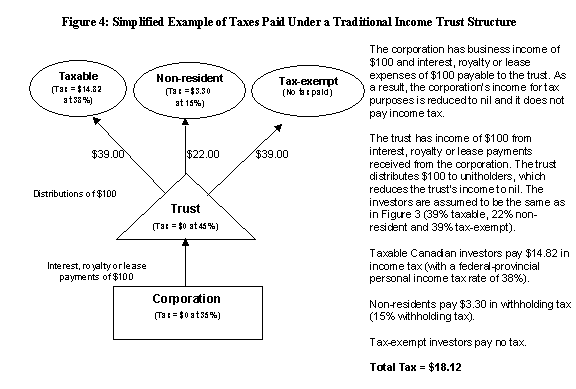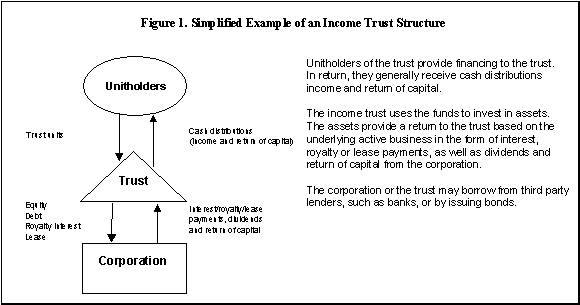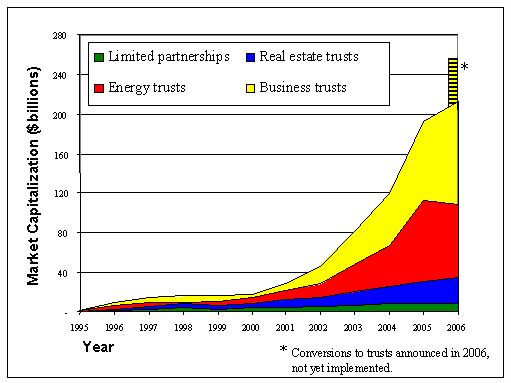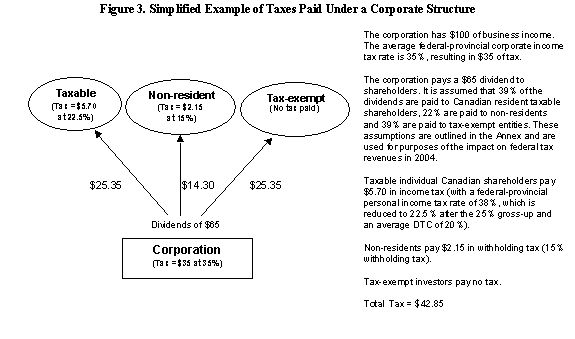Investing in oil royalty trusts can be a highly profitable venture for those seeking to diversify their investment portfolio and generate passive income. In this article, we will delve into the world of royalty income trusts, exploring their definition, benefits, risks, performance evaluation, and tax considerations.
By the end of this comprehensive guide, you will have a clearer understanding of whether investing in oil royalty trusts is the right choice for you.
What is a Royalty Income Trust?
A royalty income trust is an investment vehicle that allows individuals to benefit from the production and sale of oil and gas resources. By purchasing units or shares in the trust, investors become beneficiaries entitled to receive a portion of the revenue generated from these resource sales.
These trusts generate income through royalties paid by oil and gas companies, typically calculated as a percentage of production revenue or net profits. With their pass-through structure and potential tax advantages, royalty income trusts offer investors an attractive avenue for generating income in the energy sector.
Understanding the Benefits of Royalty Income Trusts
Investing in royalty income trusts offers several advantages, making it an attractive option for investors. These benefits include:
Royalty income trusts provide the potential for passive income and regular cash flow. As oil and gas companies extract resources, investors receive consistent distributions without active involvement.
Investors can participate in the profits of multiple oil and gas projects through royalty income trusts, offering diversification and risk mitigation. Trust units are traded on public exchanges, providing liquidity and ease of buying or selling compared to direct ownership.
Certain types of royalty income trusts offer tax advantages. Some trusts distribute a significant portion of their income as return of capital, reducing tax liability for individual investors. Specific regulations or jurisdictions may also provide favorable tax treatment.
In summary, investing in royalty income trusts provides the potential for passive income, diversification to manage risk, and potential tax advantages for certain investors. These benefits make royalty income trusts an appealing investment choice.
Assessing the Risks Involved with Royalty Income Trusts
Market volatility, geopolitical factors, and specific risks associated with different types of royalty income trusts pose significant considerations for investors.
Market volatility directly impacts royalty income trusts as fluctuations in oil prices, geopolitical tensions, and government policy changes can affect trust distributions.
Geopolitical risks such as political instability, conflicts, or regulatory changes in regions where the underlying oil and gas assets are located can disrupt production activities and hinder revenue generation for royalty income trusts.
Different types of royalty income trusts carry unique risks. Conventional oil extraction trusts may face challenges related to declining reserves or advancements favoring alternative energy sources. Unconventional oil extraction trusts may encounter higher production costs or environmental concerns.
Investors must conduct thorough research to understand and mitigate these risks when considering investments in royalty income trusts. Staying informed about market conditions, geopolitical developments, and industry dynamics is essential for making informed investment decisions.
Evaluating the Performance of Royalty Income Trusts
To evaluate the performance of royalty income trusts, consider key metrics such as distribution yield and payout history, long-term growth potential and sustainability, and management track record and financial stability.
The distribution yield measures the annualized return based on current price and distributions, while analyzing long-term growth potential involves factors like reserves-to-production ratio and demand projections. Assessing management expertise and reviewing financial stability indicators are also crucial.
Before investing, research and compare options based on investment focus, geographic diversification, historical performance, fees charged, and unique features or risks.
Diversifying Your Investment Portfolio with Royalty Income Trusts
Diversification is key to a strong investment portfolio. By including royalty income trusts, investors can go beyond traditional assets like stocks and bonds and add exposure to the oil and gas industry. These trusts offer resilience and potential returns, enhancing diversification while reducing risk.
To successfully incorporate royalty income trusts, consider risk tolerance, investment goals, and allocate a specific portion of the portfolio for these assets. Thorough research on trust options and monitoring industry trends is essential for informed decision-making.
Diversify your portfolio with royalty income trusts to capitalize on the energy sector’s resilience and potential returns.
Comparing Royalty Income Trusts to Other Investment Options
Royalty income trusts differ from traditional stocks or bonds as they provide direct exposure to commodities rather than ownership in a company. This unique characteristic allows for potential returns closely tied to resource prices and production levels.
While stocks offer capital appreciation with higher volatility, royalty income trusts are generally less volatile. Bonds provide fixed income but may have lower return potential. Considering factors like historical performance, market conditions, liquidity, and diversification benefits is essential when comparing risk-reward profiles.
Each investment option has its own appeal to different investors, making diversification key in building a balanced portfolio.
Tax Considerations for Royalty Income Trust Investments
Investing in royalty income trusts can offer tax advantages, such as return of capital distributions that reduce taxable income. Different jurisdictions may have specific tax regulations favoring investments in the oil and gas industry.
Tax implications vary based on individual circumstances and jurisdiction, so consulting a professional tax advisor is crucial. Their expertise can help optimize your investment strategy within applicable tax laws and ensure compliance.
Understanding these considerations is essential for maximizing returns and minimizing liabilities when investing in royalty income trusts.
Staying Informed: Resources for Learning More about Royalty Income Trusts
To expand your understanding of royalty income trusts, there are valuable resources available to you. Reputable websites and publications like Bloomberg, Financial Times, Oil & Gas Journal, and the Energy Information Administration (EIA) offer reliable information on trends, analysis, and regulatory filings.
Joining investor communities and forums focused on royalty income trusts can provide insights from like-minded individuals. Additionally, seeking advice from financial advisors with expertise in this area can help navigate complexities and align your investment strategy with your goals.
By utilizing these resources, you can make informed decisions regarding royalty income trusts.
[lyte id=’6ghLZdbpBWM’]







